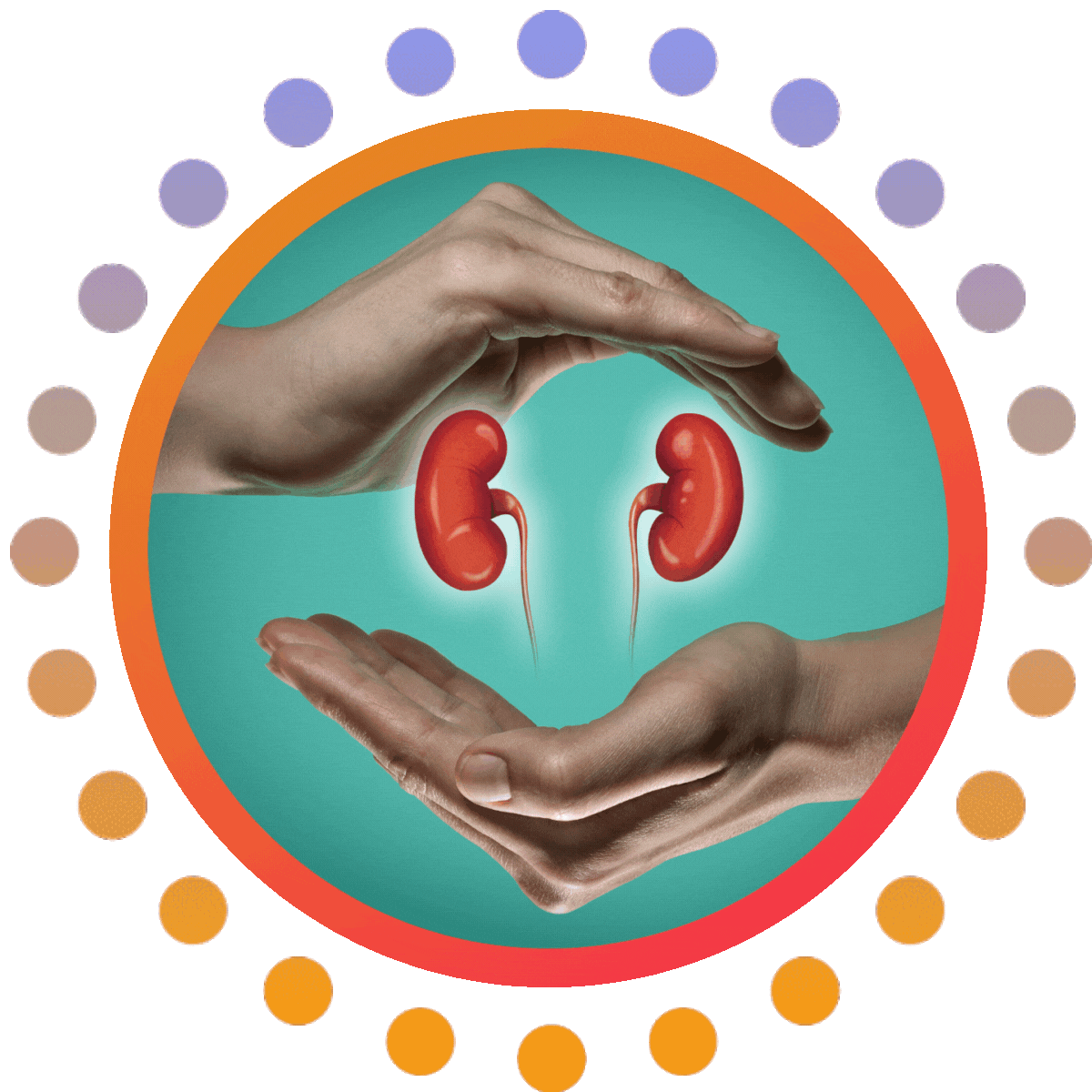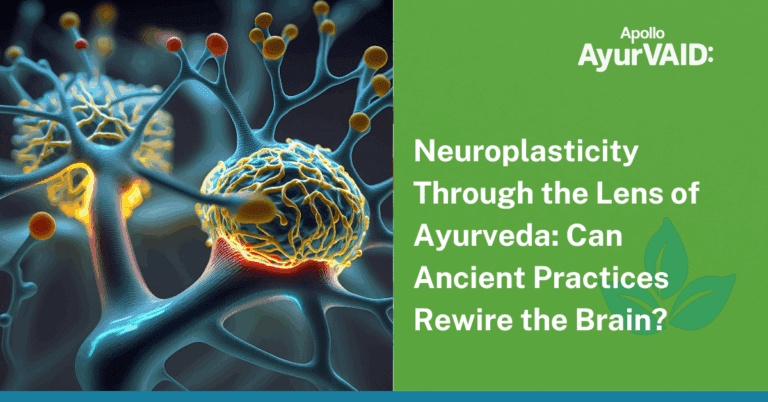
Web Stories
Step Into the Story: Explore Now
Introduction
World Kidney Day, observed on March 13, 2025, focuses on spreading awareness about kidney health and early stages of intervention in kidney damage. This year’s theme, “Early detection for healthy kidneys,” raises awareness on the need to control these conditions before they escalate into serious ailments. Ayurveda for kidney health offers a comprehensive approach to maintaining renal well-being through preventive care, lifestyle modifications, and early diagnosis.
Certain prodromal symptoms indicate upcoming kidney abnormalities – pedal or lower limb oedema, poor appetite, nausea, vomiting, changed urination, and fatigue. Ayurveda emphasizes early detection and management of such prodromal symptoms by Nidanapanchaka methods of diagnosis. This blog is dedicated to exploring therapies in Ayurveda for kidney cleanse through panchakarma, internal medication, and dietary regulations, which constitute the foundation of Ayurvedic kidney disease treatment. With a focus on restoring balance and strengthening the body’s natural detoxification processes, Ayurvedic treatment for kidney damage aims to support kidney function and prevent complications.

Kidney Cleanse - Ayurveda
Ayurveda emphasizes purification (Shodhana) therapies for maintaining overall health and managing kidney disorders. Detoxification procedures like Virechana (purgation) and Vasti (enema) eliminate imbalanced Dosha and restore systemic balance. Maintaining the integrity of the urinary system is supported through practices like not suppressing natural urges and adopting hygienic living routines.
Ashtaguna Manda is an Ayurveda diet recipe used as a home remedy for kidney and bladder cleansing. This recipe contains rice, green gram, Trikatu (pepper, long pepper, ginger), coriander seed, rock salt, and ghee-fried asafoetida in specific proportions. The liquid, Ashtaguna Manda, is typically consumed hot in a dose of 25-50 ml once or twice a day.
Here is a list of foods to consume and foods to avoid for chronic kidney disease (CKD) patients. Always consult a doctor or dietitian for personalized advice. Even “good” foods need to be consumed in appropriate portions.
Foods to Include (in moderation):
- Certain vegetables like green beans, cooked carrots, cauliflower, and cucumber
- Many fruits, such as apples, grapes, and berries
- Bread (not whole grain) and pasta
NOTE: Tender coconut water – ideal for kidney stone condition, but is not to be consumed in case of CKD
Banana stem juice, rich in fiber and low in calories, has been found to have anti-urolithiatic properties, potentially aiding in the dissolution and reduction of kidney stones, and in vitro studies have shown its effectiveness in managing kidney stones.
Foods to Avoid or Limit:
- Potatoes and sweet potatoes
- Tomatoes and tomato-based products
- Fruits with high potassium, which include bananas and oranges
- Cooked spinach and other cooked greens
- Beans and dried beans
- Milk
- Chocolate, nuts, and peanut butter
- Salt substitutes
Ayurvedic Kidney Disease Treatment
From an Ayurveda perspective, chronic kidney disease (CKD) is understood to arise as a complication of disorders affecting the urinary system or as a result of system-wide conditions, such as Prameha (diabetes). Although in classical Ayurveda texts, the disease CKD is not directly mentioned, it can be understood as derangement of Agni in Dosha and tissue level leading to Vrikka Vikara/ Mutravaha Sroto Vikara (Disease of the kidney/ disease of the urinary tract). Signs and symptoms of CKD predominantly indicate an imbalance of Vata and Kapha Doshas with concomitant derangement of multiple Dhatus (tissues). The early stages are Krucchrasadhya (difficult to treat), advanced stages being Yapya (can be palliated) or perhaps incurable.
In Ayurveda, the fundamental approach for treating CKD is to significantly slow the progression of the disease, to counteract the underlying and aggravating pathways, clinically manage complications arising from CKD, and to assist in possible restoration of kidney functions. The treatment protocol delineates:
- Avoidance of causative factors related to diet (Ahara) and lifestyle (Vihara).
- Enhancing detoxification to assist excretory functions in the body through therapies like Virechana and Vasti. Vasti Karma, especially Niruha Vasti, is considered a preferred therapeutic approach for managing CKD as it targets the Vasti Marma, which encompasses renal function.
- Pacification therapies with the application of herbal drugs targeting Vata and Kapha Dosha balance.
- Rejuvenation therapies with herbal formulations enhance kidney function, act as antioxidants, provide nephroprotective action, and improve tissue quality.
- Ayurveda interventions in clinical studies have shown improvement in symptoms, biochemical parameters such as serum creatinine and blood urea, and quality of life in CKD patients.
Ayurvedic Treatment for Kidney Damage
Ayurveda focuses on preventing and repairing kidney damage through various approaches. Rasayana drugs play a vital role in safeguarding renal tissues and mitigating damage by improving tissue qualities and increasing their resistance. Few formulations that have nephroprotective effects and the ability to enhance renal function are prescribed.
The treatment protocols aim to restore the functional harmony of the body and neutralize imbalanced Doshas that cause the damage. Ayurveda treatment aims to correct Jatharagni (digestive fire) that generates Ama (metabolic waste) and get rid of Srotorodha (obstruction of channels). The treatment also focuses on correcting Dhatwagni (digestive fires at the tissue level). All these therapeutic modalities can help unblock the microchannels that could lead to kidney toxicity by inappropriately accumulating metabolic products.
Ayurveda for Kidney Health
Ayurveda provides a comprehensive approach to maintaining renal health. It emphasizes prevention through simple yet effective practices such as:
- Not suppressing natural urges
- Adopting hygienic living routines.
- Adhering to seasonal and daily regimens
- Following proper dietary rules and regimens
Early detection and management of urinary ailments are prioritized to prevent progression to more severe conditions. Avoiding causative factors (Nidana Parivarjana) related to diet and lifestyle is considered the first and most important step in maintaining kidney health.
Ayurveda highlights the critical importance of Trimarma-Sira (head), Hrudaya (heart), and Basti (renal system) as essential structures that must be safeguarded. Preserving the Mutravahasrotasa (urinary channels) is of utmost importance in the maintenance of kidney health.Certain herbs and formulations are very beneficial for enhancing kidney health and preventing damage. Even in an advanced stage, Ayurveda prescribes Rasayana drugs to rejuvinate the kidneys and enhance vitality.
Conclusion
This 2025 World Kidney Day marks a time when Ayurveda manages kidney health through early diagnosis, preventive measures, and specific treatments based on a comprehensive approach. The purificatory therapies, dietary modifications, and herbal formulations aid in proper kidney function, slowing down the disease progression and restoring damaged kidney tissue. Ayurveda recognized the kidney system as one of the three vital structures (Trimarma) that warrant special protection because it considers natural urges and lifestyle regimen observance as important. Even for those with advanced kidney conditions, Rasayana therapies help improve the quality of life and manage symptoms through their rejuvenating properties. As this year’s theme, “early detection for healthy kidneys” suggests, incorporating Ayurveda practices alongside modern medical care can provide a comprehensive approach to maintaining optimal kidney health throughout life.

References
- Panda, A K (2024). Prevention and reduce the complications of chronic kidney diseases: A holistic health care approach. Journal of Preventive Medicine and Holistic Health. https://doi.org/10.18231/j.jpmhh.2024.009
- Dang, P et al. (2024). CHRONIC KIDNEY DISEASE(CKD) PATHOGENESIS IN AYURVEDA PARLANCE- A REVIEW! International Ayurvedic Medical Journal. https://doi.org/10.46607/iamj06p8022024
- Ji, A M et al. (2024). Integrating Ayurveda in Chronic Kidney Disease Management. AYUSHDHARA. https://doi.org/10.47070/ayushdhara.v11i5.1765
- Solanki Akshaykumar Vinodbhai, Ramakant Katara, Meena H. Ayurvedic Perspectives on Chronic Kidney Disease: A Review of Classical Wisdom and Contemporary Applications. AYUSHDHARA. 2024;11(6):324-30. https://doi.org/10.47070/
ayushdhara.v11i6.1868 - Kulkarni AN, author. Applying Ayurvedic Principles for Diagnosis and Treatment of Chronic Kidney Diseases: An Integrative Approach. International Journal of Science and Research (IJSR) [Internet]. 2023 Jul;12(7):[645-652 pp.]. Available from: https://www.researchgate.net/
publication/372761563






